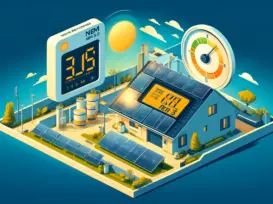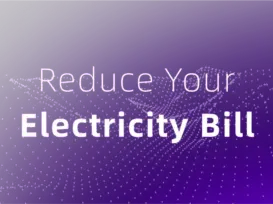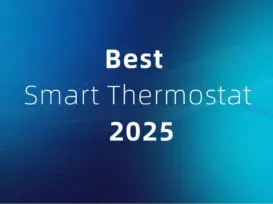Grus Home Energy - sustainable energy
Embracing the Future: Innovative Strategies for Achieving Sustainable Energy Goals
Embracing the Future: Innovative Strategies for Achieving Sustainable Energy Goals
The quest for sustainable energy is one of the most pressing challenges of our time. It involves a collective effort to transition from fossil fuels—which have long been the backbone of industrial societies but contribute significantly to climate change and environmental degradation—to renewable and cleaner sources of energy. Achieving sustainable energy goals is not only crucial for the health of our planet but also for ensuring economic stability, social equity, and energy security for future generations.
The use of renewable energy sources such as solar, wind, hydro, and geothermal power is at the core of sustainable energy strategies. These sources are abundant, inherently inexhaustible, and emit little to no greenhouse gases or pollutants. Solar power harnesses the energy from the sun using photovoltaic cells or solar thermal systems. Wind energy is captured through turbines that convert wind flow into electricity. Hydroelectric power generates electricity by harnessing the energy of flowing water, while geothermal energy utilizes the Earth’s internal heat.
Innovative technologies are constantly emerging to improve the efficiency and affordability of renewable energy sources. For instance, advancements in solar panel materials have significantly increased their energy conversion rates, while offshore wind farms are exploiting the stronger and more consistent winds available at sea. Battery storage technology is also evolving, providing a way to store excess energy generated during peak production times for use when production is lower, thus ensuring a steady supply of electricity.
However, transitioning to sustainable energy is not without its challenges. One of the major hurdles is the initial cost of setting up renewable energy infrastructure. Although the long-term benefits outweigh these upfront costs, they can be a barrier for many communities and countries. Governments and the private sector are collaborating on policies and investments to subsidize the costs and incentivize the switch to cleaner energy.
Another challenge is the integration of renewable energy sources into existing power grids. Traditional energy systems are based on the constant availability of power, whereas renewable sources can be intermittent. Smart grids and demand response systems are being developed to balance supply and demand more effectively. These smart systems are capable of redistributing energy during peak times and incorporating real-time data to optimize energy usage.
The transportation sector, which is a significant contributor to greenhouse gas emissions, is also undergoing a transformation. The rise of electric vehicles (EVs), powered by batteries that can be charged with renewable energy, is a major step towards reducing emissions. Governments are supporting this shift with incentives for EV buyers and investments in charging infrastructure.
In addition to technological advancements, sustainable energy requires changes in policies, consumer behavior, and business practices. Energy efficiency is just as important as the production of renewable energy. Governments are implementing standards and regulations that encourage or require more efficient appliances, buildings, and industrial processes. Businesses are adopting sustainable practices, not only to reduce costs but also to meet the increasing demand from consumers who are concerned about the environmental impact of the products they purchase.
Global cooperation is also essential in the pursuit of sustainable energy. Climate change and environmental degradation are transboundary problems that require joint efforts and shared knowledge. International agreements, such as the Paris Agreement, set targets for reducing greenhouse gas emissions and support collaborations in green technology development and transfer.
In conclusion, achieving sustainable energy goals entails a multifaceted approach that includes the development and deployment of renewable energy technologies, improvements in energy efficiency, shifts in transportation modes, policy reforms, and international cooperation. While challenges persist, the momentum towards a more sustainable energy future is accelerating, driven by technological innovations, economic incentives, and a growing recognition of the necessity to preserve our environment for future generations.
©2025 All Rights Reserved. Grus IoT Co.,Ltd.


